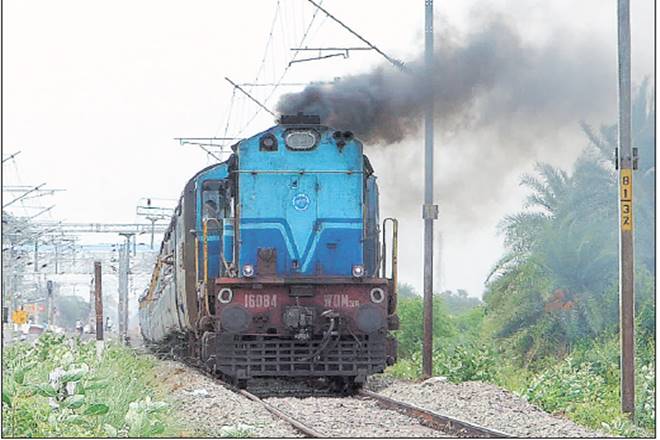Indian Railways working on technology to achieve Mission 41 K; know what it is

Indian Railways is working on technologies that will enable 40% substitution of diesel by compressed natural gas (CNG) in locomotives and nine-zoned solar panels on diesel electric multiple units (DEMUs). The move will help railways achieve its ‘Mission 41K’ target and reduce carbon footprint. The development comes close on the heels of railways flagging off a solar-powered DEMU, a six-coach rake, which is expected to save 21,000 litre of diesel annually, translating to savings of Rs 12 lakh, and also cut carbon emission by 9 tonne per year. Such initiatives are expected to help it save Rs 41,000 crore in the next 10 years — called ‘Mission 41K’ — as envisaged by railway minister Suresh Prabhu earlier this year.
Railways recently floated a tender inviting applicants to work on its diesel locomotives and develop systems that will ensure that 40% of diesel is substituted by CNG in a standard duty cycle of a DEMU, as specified by the Research Designs and Standards Organisation, a wing of railways.
“The tender specifies the engine to be worked upon in which the applicant will use the CNG substitution system. We have given the emission standard, the duty cycles are mentioned and we need 40% substitution,” said an official of the railway ministry. The dual fuel system will be able to simultaneously use CNG and diesel.Duty cycles differ on various routes depending on speed a train can attain and stops it makes. “There are eight notches and on lower notches CNG cannot be used. When a train is idling or is running on the first notch, CNG cannot be substituted,” the official said.
At present, the railways is running 19 locomotives which are designed to substitute 20% of diesel by CNG and the number of such locomotives is expected to go up to 25. “We already have one train running at 53% CNG mixing from Sakurbasti (New Delhi),” said the official, adding that 20% substitution of CNG means saving 8% of cost. Railways spends around Rs 17,500 crore each year on diesel and 18% of the carrier’s operational expenses go towards fuel cost including electricity. Prabhu had earlier said that railways’ energy bill should come down by 15%, and claims to have saved Rs 4,000 crore on power bills through various initiatives in the last three years.
Separately, railways is looking to install mono crystalline solar panels on DEMUs which are of highest efficiency. “Our constraint is space on train rooftops,” said the official.Railways is looking at putting up solar panels with nine zones. Even if one zone is in shade, the rest will work. “Normally, there are two-three zones panels. This does not work best for us as there are overhead cables and trees which will constantly cut off Sun rays,” said the official, adding that these panels will be installed on 250 coaches. Tenders for such panels have already been floated and railways has got three offers. “Tenders have already been opened and they will be scrutinised,” he said.The transporter plans to generate 1,000 MW of solar power in the next five years. It has also started generation of 26 MW of wind energy.
Source:-financial express



